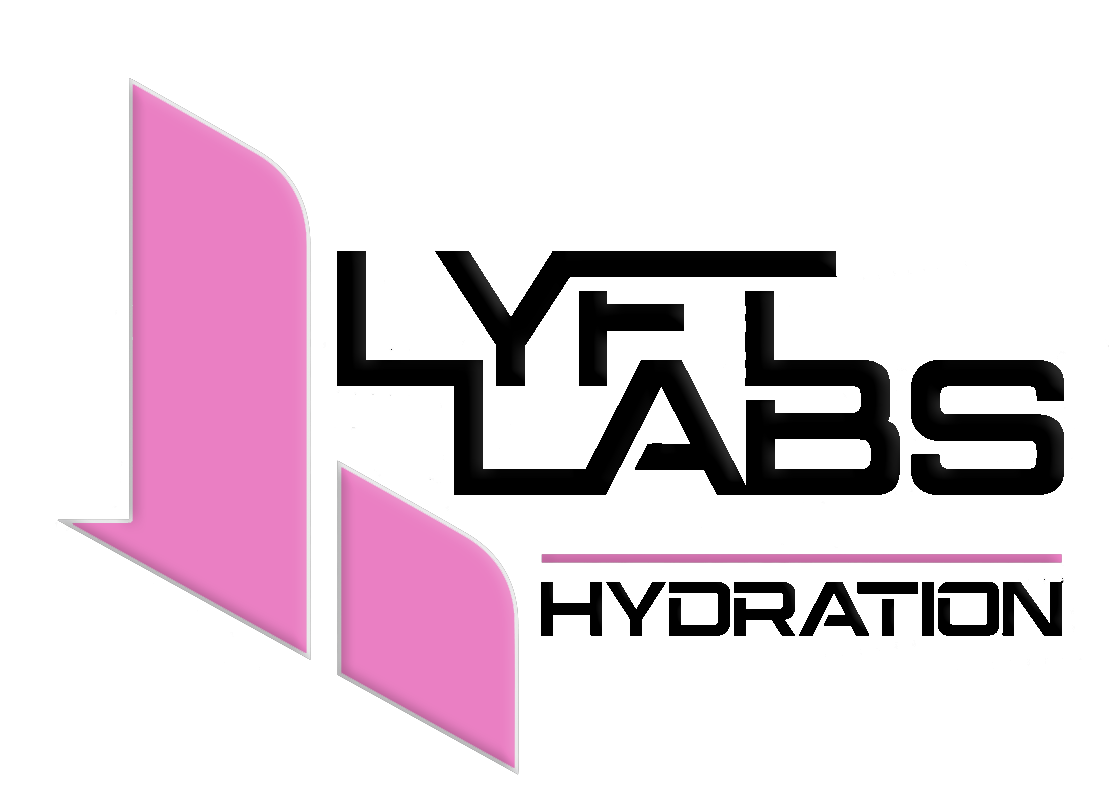Hydration Mix
Share
 How to Stay Hydrated:
How to Stay Hydrated:
-
Drink plenty of fluids:
Aim for enough water and other low-calorie beverages throughout the day.
-
Choose water as your primary beverage:
Water is the best choice for hydration, but other fluids like milk, juice, and tea can also contribute.
-
Eat hydrating foods:
Fruits and vegetables with high water content can help boost your fluid intake.
-
Pay attention to your thirst:
Drink water when you feel thirsty, or even before you feel thirsty.
-
Increase fluid intake during exercise or hot weather:
When you are physically active or in a hot environment, your body loses more fluids through sweat, so it's important to replenish them.
-
Monitor your urine color:
If your urine is clear or pale yellow, you are likely well-hydrated. Darker urine may indicate dehydration.
Consider electrolytes:
- Electrolytes, like sodium and potassium, help maintain fluid balance in the body, especially during physical activity or when you are sick.
-
Carry a water bottle:
Having a water bottle with you can help you remember to drink throughout the day.
-
Drink water with meals:
This can help you stay hydrated throughout the day.
-
Avoid sugary drinks:
Sugary drinks can contribute to dehydration and other health problems.
-
Listen to your body:
If you experience symptoms of dehydration, such as dizziness, fatigue, or headaches, drink more fluids.
How can you stay hydrated? You should drink plenty of fluids such as water, LYFT LABS to stay hydrated. The key is to drink regularly throughout the day (at least 6-8 glasses of water). If you're active, or if the weather is particularly hot, there's a greater risk that you will become dehydrated. On hot days drink LYFT LABS HYDRATION.
How to properly hydrate yourself?
Here's a more detailed breakdown:
1. Prioritize Water Intake:
- Drink when thirsty: Don't wait until you feel extremely thirsty, as that's a sign of dehydration.
- Sip steadily: Carry a reusable water bottle and sip water regularly throughout the day.
- Increase intake during hot weather and physical activity: Your body needs more fluids when it's hot or you're exercising.
- Consider electrolytes: If you're sweating a lot, sports drinks or electrolyte tablets can help replenish lost minerals.
- Don't overdo it: While water is essential, drinking too much can lead to hyponatremia (low sodium levels), so listen to your body's thirst cues.
2. Incorporate Hydrating Foods:
-
Choose water-rich options:
Fruits and vegetables like watermelon, cucumber, lettuce, and celery can contribute to your hydration.
-
Incorporate hydrating foods:
Include foods like soups, broths, and even some dairy products in your diet.
-
Consider electrolytes:
Some foods, like bananas, are rich in electrolytes, which are important for maintaining hydration.
- 3. Other Tips:
- Set reminders: Use a phone timer or other reminders to sip water throughout the day.
- Flavor your water: Add slices of fruit, herbs, or a splash of juice to make water more appealing.
- Be mindful of caffeine and alcohol: These can have a dehydrating effect.
- Listen to your body: Pay attention to signs of dehydration, such as thirst, dark urine, or fatigue, and address them promptly.
How do I know if I'm hydrated?
Here's a more detailed breakdown:
- Urine Color:
- Pale yellow or straw-colored: Indicates you're likely well-hydrated.
- Darker yellow: Suggests you need to drink more fluids.
- Urination Frequency:
- Frequent urination: Is a sign of good hydration.
- Less frequent urination: Could indicate dehydration.
- Signs of Dehydration:
- Thirst: While thirst is a sign of dehydration, it's best to drink water before you feel thirsty.
- Fatigue: Dehydration can lead to fatigue and reduced energy levels.
- Headaches: Dehydration can trigger headaches.
- Dry Mouth, Lips, and Tongue: These are all signs of dehydration.
- Dark, strong-smelling urine:
- Dizziness or lightheadedness:
- Sunken eyes:
- Other Considerations:
- Skin Pinch Test: Pinch the skin on the back of your hand. If it takes a while for the skin to return to its original position, you may be dehydrated.
- Sweat: If you're exercising or working in a hot environment, pay close attention to your sweat and fluid intake.
- Listen to your body: Pay attention to your body's signals and drink fluids when you feel thirsty or if you notice signs of dehydration.
- Don't wait until you feel thirsty: if you're thirsty, you're already mildly dehydrated.
What hydrates better than water?
While water is essential for hydration, some beverages, like milk, coconut water, and electrolyte drinks, can potentially hydrate better than plain water due to their electrolyte content and other nutrients that aid in fluid retention.
Here's a breakdown of some hydrating options beyond plain water:
-
Milk:
Studies suggest that milk, especially skim milk, can keep you hydrated for longer due to its protein, lactose, and fat content, which slow down stomach emptying and extend the duration of hydration.
-
Coconut Water:
Coconut water contains naturally occurring electrolytes, making it a good choice for rehydration, especially after exercise.
-
Sports Drinks:
These drinks are formulated with electrolytes and carbohydrates, which can be beneficial for fluid replacement and rehydration, particularly during intense physical activity.
-
Electrolyte Drinks:
These drinks are designed to replenish electrolytes lost through sweat, making them a good option for rehydration after exercise or in hot weather.
-
Fruit Juice:
100% fruit juices can be hydrating and provide essential vitamins and minerals.
-
Tea:
Tea can also contribute to hydration, and is a good source of flavonoids.
-
Smoothies:
Homemade smoothies can be a hydrating and nutritious option, especially when made with fruits and vegetables.
-
Watermelon:
Watermelon is a hydrating food with a high water content and essential nutrients.
-
Aloe Vera:
Aloe vera juice can be an effective remedy for dehydration, potentially due to its water content and electrolytes.
-
Fruit-Infused Water:
Infusing water with fruits or herbs can make it more palatable and encourage higher water intake.
-
Plant-Based Milk:
Plant-based milk alternatives can be hydrating, especially those that are fortified with calcium and other nutrients.
What does good hydration mean?
Good hydration is one of the most important aspects of the diet – drinking enough liquids to keep the fluid levels in the body topped up helps to ensure that all bodily functions are able
How do I Rehydrate myself?
- Water. ...
- Sports drinks. ...
- Skim and low fat milk. ...
- 4. Fruits and vegetables. ...
- Oral rehydration solutions. ...
- Coffee and tea.
What are the 5 main symptoms of dehydration?
- feeling thirsty.
- dark yellow, strong-smelling pee.
- peeing less often than usual.
- feeling dizzy or lightheaded.
- feeling tired.
- a dry mouth, lips and tongue.
- sunken eyes.
What drink will hydrate you the fastest?
For the quickest hydration, consider drinks with electrolytes and a small amount of sugar, like oral rehydration solutions or sports drinks, as they promote faster absorption of fluids compared to plain water.
Here's a more detailed breakdown:
-
Plain Water:
While water is essential for hydration, it may not be the fastest way to rehydrate, especially after exercise or when electrolytes are depleted.
-
Oral Rehydration Solutions (ORS):
These solutions, like Pedialyte or Liquid I.V., are specifically designed to help rehydrate quickly, especially after vomiting or diarrhea. They contain electrolytes and a small amount of sugar to promote faster absorption of fluids.
-
Sports Drinks:
Similar to ORS, sports drinks contain electrolytes and carbohydrates, which can help with faster hydration, particularly after intense exercise or sweating.
-
Milk:
Research has shown that milk, especially low-fat milk, can be a good option for hydration, as it contains electrolytes and protein, which can help with fluid retention.
- Other Hydrating Options:
- Juice: Can contribute to daily fluid needs but avoid sugary drinks when trying to rehydrate quickly.
- Herbal Tea: Can be a hydrating alternative to water.
- Coconut Water: A naturally hydrating beverage with electrolytes.
- Sparkling Water: Can provide similar hydration benefits to still water, as long as it does not contain added sugars or other dehydrating ingredients.





